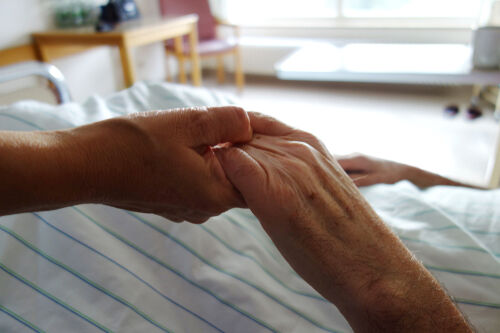Assisted Suicide
Palliative care expert issues warning about Jersey assisted suicide proposals

An expert in palliative medicine has warned Jersey officials not to allow doctor-assisted suicide on the island as the practice would place the most vulnerable at risk.
Baroness Finlay of Llandaff, a professor of palliative medicine and Crossbench member of the House of Lords, said supposed "safeguards" in an assisted suicide law are meaningless.
Raising the issue of incremental extension of laws, she said: “It is incredibly easy to expand boundaries. Canada has already expanded their ‘services’ to include people with mental illness.”
“In changing a law, you have to consider the potential unintended consequences. The problem for a legislator is that you have to make sure that you are legislating for your whole population to be safe", she said.
The Baroness said palliative care is the safest, ethical means of helping suffering people, saying: “The number of people dying well is far greater than it ever used to be, and it can be even better.”
A consultation of Jersey residents is currently ongoing and has already received more than 350 responses, according to a BBC report.
Islanders can still submit comments in a number of ways - including by completing an online survey or by commenting on social media.
Last week, UK campaigners said plans to legalise doctor-assisted suicide in Scotland would open the door to abuses affecting the most marginalised.
The Better Way campaign, a group of academics, disability activists, and expert medics, said the development of assisted suicide and euthanasia legislation in countries like Canada is a warning to the UK.
Dr Miro Griffiths, an expert adviser on disability policy and spokesman for the organisation, said:
“The development of Canada’s euthanasia framework since it was introduced in 2016 should trouble every politician in the UK who is being asked to back legal assisted suicide. Canada shows that laws of this kind are inherently unsafe, and unpredictable.
“In Canada and other European jurisdictions, safeguards have failed and been dispensed with over time as activists push for wider access to legislation. This cannot ultimately be denied by parliaments and courts because doing so is felt to be ‘exclusionary’.
“Cases of coercion and abuse and worsening discrimination against marginalised groups are also part of the global picture. People feel forced to opt for assisted death because of poverty, homelessness, or a lack of care. These laws offer only an illusion of ‘choice’.
“MSPs are right to feel empathy for people who are suffering at the end of life, and who may wish to end their lives. Ensuring access to high quality palliative care and wider forms of support is the moral response to human suffering, not lethal drugs.
“We have a better vision for Scotland involving high quality palliative care for all, enhanced suicide prevention, and greater action on behalf of vulnerable and marginalised groups. We hope MSPs will opt for a positive, ethical future rather than doctor-assisted suicides.
“The evidence heard in previous debates about assisted suicide makes it clear that legalising this practice in Scotland would jeopardise the safety, dignity, and equality of many Scots. It remains a regressive and dangerous plan that must be robustly opposed.”
Share
